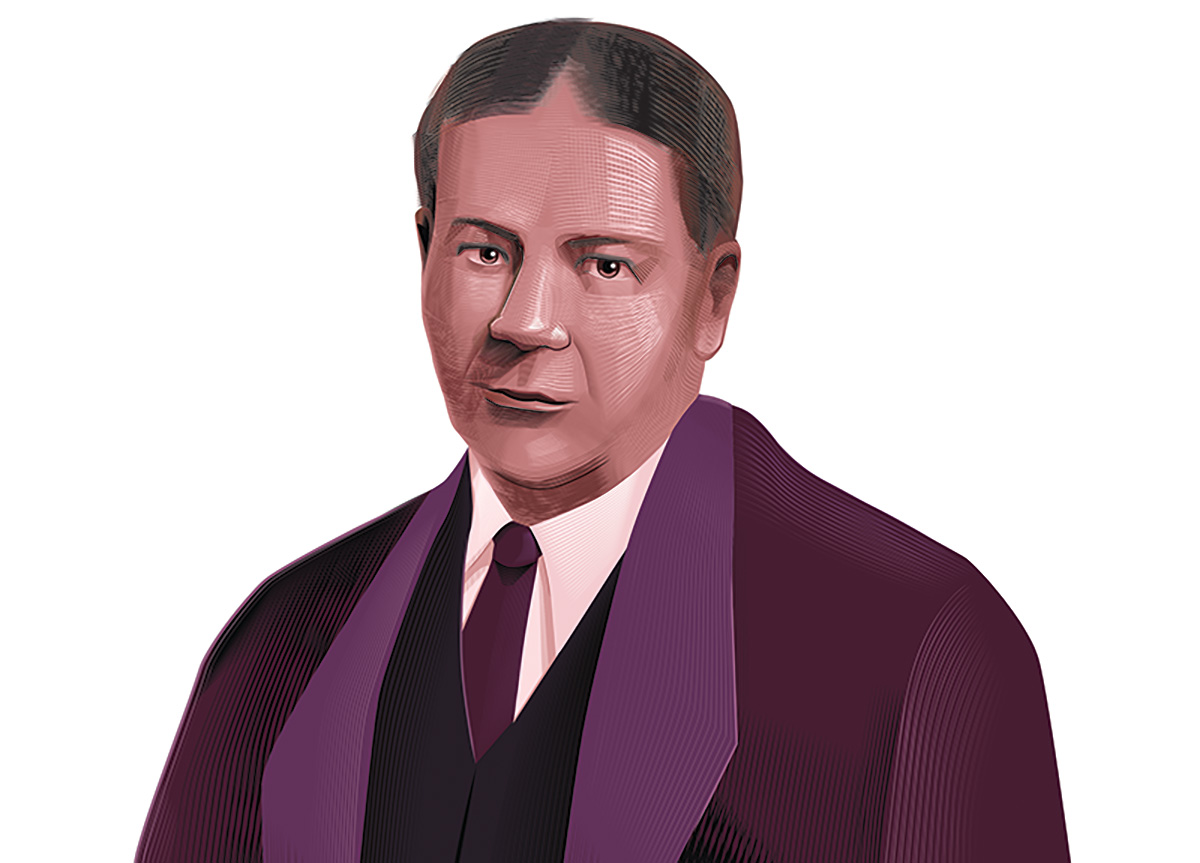Perhaps the most popular author at Princeton in the 1920s and 1930s was a man whose book didn’t appear on class syllabi or in the University’s libraries. But he was as widely read, and as closely studied, as Cicero or Aristotle. The author was Norman Anthony, the editor of the New York humor magazine Judge — which was, itself, designed to be read by Princeton undergraduates. His book, called Here’s How!, featured recipes for making alcoholic beverages. The years of its popularity were the years of Prohibition.
Prohibition was a dark hour in Princeton’s history. At least Princetonians saw it that way. During reunion dinners, alumni looked to the physicians among their ranks to vouch that the spirits in the punch bowls wouldn’t blind them. Joshua Logan ’31 described, in his memoir, a daily tide of black-market activity that washed across campus: “Since Prohibition prevailed, at 5 in the afternoon hundreds of undergraduates crossed quadrangles with little brown paper bags filled with ice and mixes. Outside the ground-floor windows, bootleggers delivered expensive bad whiskey and cheap worse gin.”
These ingredients, ice and gin and the rest, they mixed into drinks using Anthony’s book. In a 1927 interview with The Daily Princetonian, Anthony said that at least 70% of the book’s sales came from college men. They couldn’t cook food to save their lives, but when it came to Anthony’s recipes, they were culinary maestros.
Most of the drinks in Here’s How! were invented by collegians. One, called the Swiss Itch, was created by a Princeton student named James Norton 1927: “Place a pinch of salt on the back of the right hand and with the same north paw hold half a lemon between thumb and forefinger. Hold a small glass of Gordon water in the left hand and follow this sequence: lick the salt, drink the Gordon water and suck the lemon!”
Anthony said that at least 70% of the book’s sales came from college men. They couldn’t cook food to save their lives, but when it came to Anthony’s recipes, they were culinary maestros.
The son of a teetotaler, Anthony grew up in Buffalo, New York, and, at 25, moved to New York City to make his fortune as a magazine illustrator. Somewhat to his surprise, he did make his fortune, quickly rising from a staffer at Judge to the magazine’s editor. Judge aimed at an audience of college students and city-dwelling college alumni. It quoted jokes from college humor magazines, including Princeton’s Tiger, and its own jokes often played on college rivalries and archetypes. For example, it once said of a posh New York hotel where Princeton students spent weekends, hoping to meet city girls, “I understand that the Biltmore lobby is called the Princeton Extension Institute!”
Prohibition was an unexpected boon for the magazine, Anthony later said. The nationwide ban on alcohol, which was passed in 1920, united Americans in the quest to make and mix their own alcoholic beverages. Anthony started writing a new column for Judge, “High Hat,” that featured write-ups of speakeasies and recipes for homemade hooch. Collegians bought the magazine for the column alone — and they were the ones who sent in most of the recipes. In 1927, he compiled the best recipes in Here’s How!, which sold out four editions.
In 1928, Life magazine hired him away, and Anthony later wrote of his lofty new perch: “I was assured a contract wasn’t necessary with such a high-class, old-school-tie outfit. I thought I was some guy.” The stock market crash of 1929 ended the party for everyone. Magazine sales plummeted, and his bosses at Life swiftly, debonairly cut him from the staff.
Here’s How! and its sequels helped Anthony stay financially aloft through the early years of the Depression. In fact, when Prohibition ended in 1933, he was rather put out — less for money’s sake, even, than because the grape lost the taste of a forbidden fruit, which made even those baleful brews that students swilled in dorm rooms and speakeasies taste sublime: “Café Society during the Prohibition days had a zest to it, a thrill,” Anthony wrote in his memoir. “The present order was a hollow mockery, a hollow gaiety with hollow-eyed, hollow-headed puppets: all bored to death.”










No responses yet